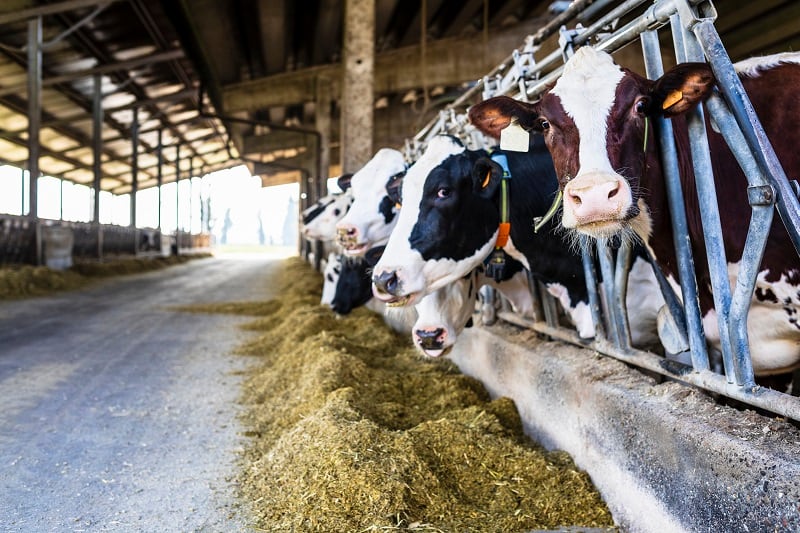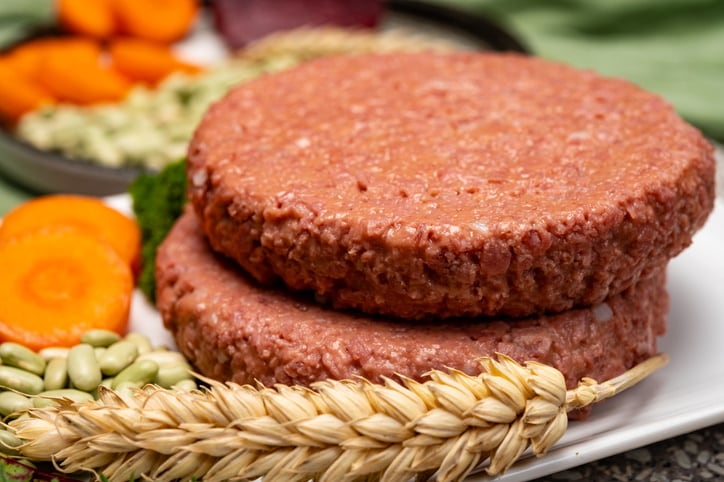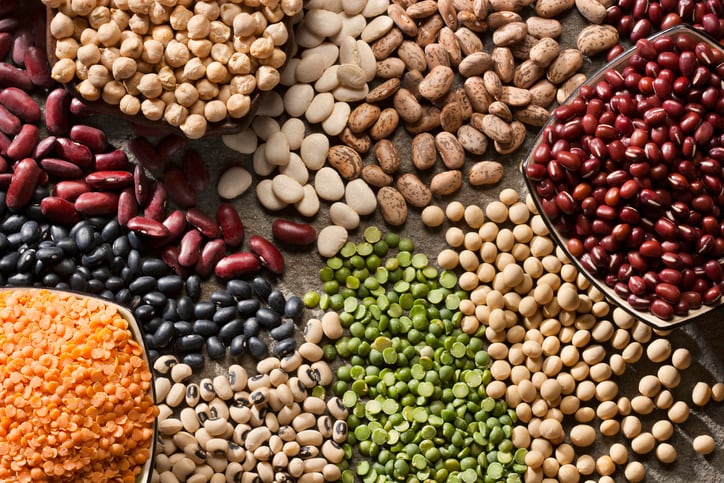Spanish scientists recently set out to examine the phenomenon that’s always been presumed: plant-based based diets cause people to fart more.
Researchers from the Liver and Digestive Diseases Networking Biomedical Research Centre (CIBERehd) in Barcelona studied a group of 18 healthy men (for the sake of homogeneity, only men were recruited) aged between 18 and 38. Participants ate either a fibre-enriched Mediterranean diet rich in fruits, vegetables, grains and legumes or a Western-type diet with fewer fruit and vegetables for two weeks. After a break, they then switched to the other diet for two weeks.
The researchers concluded that men who follow a plant-based diet fart more, and have larger stools than men following a standard Western diet. The results revealed that those following a plant-based diet farted seven times more per day and had stools twice the size as those following a Western diet on average.
Farting is a sign of a healthy diet and a healthy colon, say scientists. Another study recently reported by FoodNavigator concluded that consuming plant-based meat alternatives as part of a healthy balanced diet can elicit changes in the gut microbiota consistent with positive health outcomes.
This study also revealed some graphic facts about plant-based diets and gas. Participants who replaced several meat-based meals per week with meat alternatives over a period of four weeks reported ‘better and more frequent bowel movements, with overall better consistency and a little more gas than usual’.
“In my experience that’s just gut bugs doing their work,” noted the study’s author Toribio-Mateas, a researcher based at the School of Applied Sciences at London South Bank University.
But the results also beg an interesting question: could plant-based diets – which are so in vogue at present much because of their environmentally friendly promise – potentially end up damaging the planet because of this excess flatulence created?
“I believe scientists are onto this, but we don’t know yet what the impact might be,” said Toribio-Mateas. “What we do know is that there’s some methane in farts and burps, and that this is part of the normal cycle of energy production for mammals. Potentially, if we consider humans as just another mammal, the fact that the planet is massively crowded with billions of humans doesn’t bode well for the atmosphere… It’s an interesting twist. Mess with one piece, and the whole system is messed up as a result.”
David Julian McClements is a British food scientist and a Distinguished Professor at the University of Massachusetts Amherst Department of Food Science. In his book Future Foods: How Modern Science Is Transforming the Way We Eat he noted a ‘pioneering study in the fart field’. Here, researchers at the Hallamshire Hospital in Sheffield in the UK fed people 200g of baked beans in tomato sauce and then measured how much gas was produced. The major gases on offer in the resulting farts were carbon dioxide, hydrogen, nitrogen, methane, and hydrogen sulphide, with different individuals discovered to have their own unique ‘gaseous fingerprint’.
Interestingly, this study revealed that ingestion of a 'fibre free' diet for 48 hours was shown to ‘significantly reduce’ the total volume collected in 24 hours, reduce the carbon dioxide volume, and ‘practically eradicate’ hydrogen production.

A drop in the ocean?
It’s likely, however, that the amount of gas created by human farts is ultimately trivial. The Sheffield study revealed the volume of gasses generated per day ranged quite widely, from around 500–1500 mL, with men and women expelling roughly similar volumes.
It’s been estimated that this roughly translates to there being around 73 metric tons of methane and 1000 metric tons of carbon dioxide put into the atmosphere by farting daily, equivalent to roughly 1000 people flying from New York to Los Angeles every day.
Fernando Azpiroz, who led the CIBERehd study, added we can ignore the CO2 portion of the flatulence, because the carbon dioxide we exhale does not contribute to global warming. He told FoodNavigator: “Eating plant-based diets in a normal environment does not contaminate the atmosphere, because the amounts of gas produced are small, and the largest part of the gases produced in the intestine are hydrogen and CO2, normal gases in air. Only a small part of the gases produced is methane.”
Methane, although it has a shorter life, is a much more potent greenhouse gas, causing around 86 times more warming than C02, according to the Intergovernmental Panel on Climate Change.
Interestingly, McClements also observed that recent research has shown that most of the gas produced in our guts is “actually absorbed back into our blood or consumed by colonic bacteria rather than eliminated through our anus, which is probably just as well for those who work in a small office”.
Burps, not farts, are the problem
What’s more, it is burps – mainly from cows, which can individually produce up to 200kg of methane a year – not farts that cause the worst warming.
Human burping, meanwhile, is, with the exception of gas contained in carbonated drinks, on the whole independent of the diet and caused by swallowed air. That’s unlike cows, who produce methane when they regurgitate the grass from their first stomach to chew again – called chewing the cud.
Scientists are therefore generally of the view that if people cut their meat and dairy consumption and switch to plants, the move – and the resulting rising volume and frequency of flatulence – will be positive for the environment as it will mean fewer cows burping.
“My first impression is it’s not a big deal, and even if it were in terms of direct impacts, the overall climate effect would have to be discounted from the likely larger savings linked to the avoided methane emissions of the replaced carnivorous diet,” Francesco Tubiello, who heads the environment statistics unit at the Food and Agriculture Organization of the United Nations, told FoodNavigator.
Dr Dani Rabaiotti, a London-based scientific researcher and author of popular science titles including True or Poo: A kids guide to animal facts and fakes and the New York Times Bestseller Does it Fart?, told us: “It would have a really positive impact because cows produce way more methane than human farts because they break down cellulose in plant material a lot more. Going vegetarian or vegan is one of the best things you can do as an individual to combat climate change for that reason. Particularly giving up beef and lamb.”





